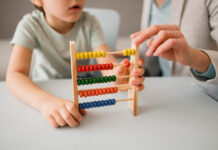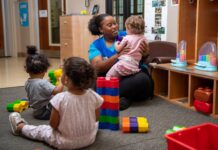Big families are among the proofs of what the famous quote, “The more, the merrier,” says. The happy noise of fun and laughter when members of a big family come together is pure bliss indeed! Nonetheless, it cannot be denied that there are also a few challenges when the family is huge and the members have standpoints and personalities that contrast each other.
Parents are the ones who can fully understand this from beginning to end. While they are still starting to build their own family and give birth to their first few children (if they prefer more than one), the common struggle is making their children emotionally connected and attached with each other and avoiding chaos to develop between them.
As you know, most siblings are usually frenemies with each other. Some are more often enemies than friends. It’s understandable and quite fine when they are still very young and innocent, but if the atmosphere remains that way in their relationship as they turn into ladies and gentlemen, it’s unhealthy. Over time, those childish quarrels can amount to adult fights. Some even go against one another with their personal lawyers. No parent wants to see their kids do that to each other!
So start them young! While they are young, let them know how important it is to have a good, loving relationship with their own siblings. They are not enemies but friends – the best of friends at that! Yes, they are kids who do not yet have full control of their emotions, but you can guide them.
Below are fantastic parenting tips on how you can help siblings grow close with each other and become inseparable!
1 – Establish healthy rules at home.
As parents, you have the authority at home. Use that power for good – for the good of your entire home. Bring you and your kids together in accordance and serenity by establishing healthy rules at home.
Good rules are set not to be controlling or suffocating. Rather, they are formulated so that everything at home will be in order, problems will be avoided, and in case they arise, they can be managed wisely.
Letting your kids know that your house has rules will help them understand how important it is to work with one another in fulfilling those guidelines. Directly state in those rules that caring for each other and being accountable with one another are included as well. You will be doing that not to unnaturally impose a good relationship with each other but to lead them until they naturally cherish it.
2 – Avoid negative comparisons.
It’s a common thing for many parents to see or find from other kids what they do not see from their kids and actually voice them out. That alone is inappropriate in parenting. What’s worse is when you do an announcement of comparisons between your own kids.
Avoid negative comparisons. While you do have it in your mind, you should not let the siblings hear what you say. Comparing your kids with each other gives them the idea that they are each other’s competitors. While it already instinctively exists in kids’ heads while they aim to get their parents’ attention, comparisons make things worse. Over and above that, their self image and self confidence gets harmed as well. The culprit is their very own parents.
3 – Neglect favoritism.
Love your kids equally, and make them feel that. Neglect favoritism. At school and at work, favoritism makes the environment tense, uncomfortable and distressing. The place lacks harmony and genuinity, particularly when people know that favoritism does exist in it.
Eliminate favoritisms among your kids. That’s wrong. If your other kids feel that you favor one child more than them, they will be hurt. Making everything worse, they will despise their sibling who receives the more special treatment.
4 – Let them spend time with each other alone.
Allow playtime among the siblings without their parents. You may supervise them from afar or set a surveillance camera in the room to watch them from another area of the house. Let them spend time with each other alone. They must get to know more about their siblings and learn their first friendly interactions in life through their first besties.
5 – Teach them to appreciate each other.
Be more grateful for life and for family. Teach your children to appreciate each other. Physical affection through hugging builds a wonderful link between people. Let your kids not be shy about sharing a hug with each other. It’s one sign of being thankful for your family’s existence, too!
6 – Calm down fights.
When your kids have misunderstandings, calm them down. Do not ignore them mindlessly. Go between them, and help them settle things and stop the war. Stand by them, and speak gently and without bias. Let them get a grip of themselves. Discuss with them, and know what the problem is. You cannot just let them be on bad terms with each other, even though they may be just young ones. Sibling fights are normal, but parental guidance is very important, so no serious emotional wounds will occur and stay.
7 – Let them solve their conflicts sometimes.
At times, too, let them solve their conflicts. Watch from a bit far, but try not to meddle sometimes, or at least hear and observe how they will manage to fix things by themselves. If they do not learn how to sort things out as kids without their parents sometimes, they cannot maintain a good relationship by themselves as adults.
Problems between siblings are tests that should strengthen and tighten their bond even more. It’s one of the ways they discover more things about each other and become closer and more attached to each other. Step in when things are hard for them to iron out; nonetheless, teach them dependence together, too.
____________
SIBLINGS STICK TOGETHER
Initially, first-born children think that they get into a fierce competition when younger siblings come into their life. They are the first kids of their parents, so they are the ones who get that feeling. They experience having everything before another baby or other babies come into the picture. It’s because their parents’ attention seems to be divided between them and the new kids. They believe they have more rights and should always get better than what the rest receive. That’s not unusual. It happens, and it’s normal.
What’s good is that later on in life, every child who grows up with one or more siblings realizes how happy, fun and relieving it is to have buddies they can forever keep. Although being a solo child is awesome, it’s a heartwarming thing to also have confidantes that will always have your back.
If you are a parent, know that you have a huge and serious responsibility in raising your kids individually and in helping their relationship with each other be in good shape. While you cannot do that all their lives, how you do that while they are still reckless kiddos will influence their life and relationship while growing up and maturing.
Parents will not be physically around forever; no one will be. But all parents will be reassured and grateful to know that their kids will live their lives happily and their relationships with each other peacefully!
_____________
ABOUT THE AUTHOR:
Nicole Ann Pore is a writer, an events host and a voice over artist. Quality and well-researched writing is her worthwhile avenue to enlighten and delight others about things that matter. She is a daytime writer for Adams Lawyers, a team of professionals that offer well-rounded service for all legal needs. Nicole graduated Cum Laude from De La Salle University Manila, Philippines with a Bachelor’s Degree in Communication Arts.















